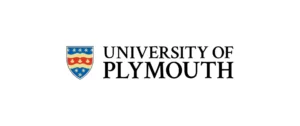The University of Kent, often called the UK’s European university, is a leading public research institution based in Kent, England, with a reputation for outstanding teaching, innovative research, and a diverse, inclusive community. Established in 1965, it serves over 18,000 students from 152 countries, with 15.5% international students, across its main campuses in Canterbury and Medway, a centre in Tonbridge, and postgraduate centres in Paris, Brussels, Athens, and Rome. Known for its collegiate structure and interdisciplinary approach, Kent ranks among the top 40 UK universities (The Times Good University Guide 2025) and offers a dynamic student experience. This guide explores Kent’s campuses, academic programmes, rankings, facilities, and more, making it an essential resource for international students considering study at this vibrant institution.
History and Evolution
Founded on 4 January 1965 with its Royal Charter, the University of Kent welcomed its first 500 students in October 1965, with Princess Marina, Duchess of Kent, as its inaugural Chancellor. Initially named the University of Kent at Canterbury (UKC) to reflect its cross-boundary campus, it adopted its current name in 2003 after local government reforms placed the Canterbury campus entirely within the city. Conceived as a collegiate university with an interdisciplinary focus, Kent established four original colleges—Darwin, Eliot, Keynes, and Rutherford—later adding Woolf and Turing. Over the decades, it expanded with the Medway campus (2001), Tonbridge centre (1982), and European postgraduate centres, earning the moniker ‘UK’s European university’ for its strong European ties. Despite shifts from its original interdisciplinary vision due to policy changes, Kent remains a leader in research and teaching, with a global outlook.
Campuses of the University of Kent
The University of Kent operates two main UK campuses in Canterbury and Medway, a continuing education centre in Tonbridge, and specialist postgraduate centres in Paris, Brussels, Athens, and Rome. Each offers unique facilities and environments tailored to diverse academic and lifestyle needs.
Canterbury Campus
Set on 300 acres of parkland overlooking the historic city of Canterbury (CT2 7NZ), the Canterbury campus is Kent’s largest, housing over 6,000 students. Just 6 miles from the coast and an hour from London by high-speed train, it’s a green, self-contained community with stunning views of Canterbury Cathedral. Key features include:
-
Facilities: The Templeman Library with over 1 million resources, 24/7 study spaces, and digital access to JSTOR. The Gulbenkian Arts Centre, hosting theatre, cinema, and music, is an Arts Council England National Portfolio Organisation. Industry-standard labs support biosciences, forensics, and computing, while the Kent Sport centre offers free first-year gym membership.
-
Accommodation: Over 5,000 rooms across six colleges, offering en-suite, catered, or self-catered options from £120–£200 per week. First-year students choosing Kent as their firm choice are guaranteed housing. All rooms include Wi-Fi, utilities, and insurance.
-
Student Life: A vibrant hub with 250+ societies (e.g., Indian Society, Raise and Give) and sports clubs. Events like Worldfest, Holi, and Chinese New Year celebrate diversity. The campus has shops, restaurants, bars, a nightclub, and a cinema, creating a lively, all-in-one community.
The campus’s collegiate structure fosters belonging, though some students note parking challenges during peak times. Its proximity to Canterbury’s cultural scene enhances the student experience.
Medway Campus
Located at a former naval base in Chatham Maritime, the Medway campus is a modern study space beside the River Medway, shared with the University of Greenwich and Canterbury Christ Church University as part of the Universities at Medway partnership. It serves around 2,000 students, focusing on business, health, and journalism. Highlights include:
-
Facilities: The Drill Hall Library, a Grade II-listed building, offers extensive resources and study spaces. Specialist labs for pharmacy, journalism, and health sciences, plus the Medway Park sports centre, support academic and extracurricular activities.
-
Accommodation: Pier Quays, a short walk from campus, provides en-suite rooms with shared kitchens from £150 per week, including Wi-Fi and utilities. Private rentals in Chatham are also affordable.
-
Student Life: A close-knit community with societies and sports clubs, enhanced by Medway’s regeneration, offering shopping, dining, and cultural events like the Dickens Festival. London is 45 minutes away by train.
Medway’s smaller size suits students seeking a focused environment, though some find its facilities less extensive than Canterbury’s.
Tonbridge Centre
The University of Kent at Tonbridge, established in 1982, focuses on continuing education and professional development, offering part-time and short courses in subjects like creative writing and history. Located in Tonbridge (TN9 1TG), it serves local professionals and mature learners with evening and weekend classes. Facilities are modest, with seminar rooms and a small library, but its accessibility by train from London (40 minutes) makes it convenient. The centre has limited student life activities, as it caters to non-residential learners.
European Postgraduate Centres
Kent’s European centres in Paris, Brussels, Athens, and Rome offer specialised postgraduate programmes, leveraging each city’s cultural and political significance:
-
Paris: Based at Reid Hall, it offers MA programmes in history, literature, and film, with access to Parisian archives and cultural institutions.
-
Brussels: Located near EU institutions, it focuses on international relations and law, ideal for students interested in policy and diplomacy.
-
Athens: Offers heritage management, combining archaeology and cultural studies, with fieldwork opportunities.
-
Rome: Specialises in ancient history and classics, with access to Roman sites.
These centres are small, with seminar-based teaching and no on-campus housing, requiring students to arrange private accommodation. They suit postgraduate students seeking niche, location-specific study, though facilities are less comprehensive than UK campuses.
Academic Offerings and Courses
The University of Kent offers over 300 undergraduate and postgraduate programmes across three faculties: Humanities, Sciences, and Social Sciences. Courses are accredited by bodies like the British Psychological Society and the Chartered Institute of Marketing, with options for study abroad, year in industry, or elective modules in computing, languages, or management. Key programmes include:
-
Humanities: History, English, drama, film, and languages, with strengths in creative writing (top 20, The Guardian 2025).
-
Sciences: Biosciences, chemistry, forensic science, pharmacy, and sports science, supported by advanced labs.
-
Social Sciences: Business, law, economics, politics, and social policy, with Kent Business School holding ‘Triple Crown’ accreditation (1% of global institutions). Social work and history of art rank in the UK top 10 (The Times Good University Guide 2025).
Foundation years, pre-sessional English courses, and online postgraduate programmes (e.g., Advanced Child Protection) cater to diverse learners. Over 4,000 work placements annually, including at the Kent Law Clinic, enhance employability, with 95.1% of graduates in work or further study within 6 months (HESA 2023).
Rankings and Reputation
Kent is a research-intensive university with a strong teaching focus, earning a Gold rating in the Teaching Excellence Framework (2017). Recent rankings include:
-
QS World University Rankings 2025: 380th globally, 40th in the UK.
-
The Times Good University Guide 2025: 40th in the UK, up 12 places from 2024.
-
Research Excellence Framework 2021: Top 20 for research intensity, outperforming 11 Russell Group universities; 97% of research rated internationally excellent.
-
Subject Rankings: Top 10 UK for history of art, social policy, and social work; top 20 for anthropology, architecture, law, and linguistics (The Times Good University Guide 2025).
Students praise Kent’s supportive lecturers and hands-on learning, with facilities like the crime scene house for forensics. However, its global ranking (380th) trails research-heavy universities, and some StudentCrowd reviews note library resource strain during exams. Kent’s employability focus and diverse community remain standout strengths.
Tuition Fees and Cost of Living
Tuition fees for 2025 are:
-
Undergraduate:
-
UK Students: £9,250 per year.
-
International Students: £18,600–£23,700 per year, depending on the programme (e.g., pharmacy is higher).
-
-
Postgraduate:
-
UK Students: £8,000–£12,000 per year.
-
International Students: £17,900–£22,700 per year, with MBAs up to £25,000.
-
-
Living Costs: £10,224–£12,000 for 9 months, including accommodation (£120–£200/week), food, transport, and entertainment. Canterbury is more affordable than London, with Medway slightly cheaper.
Scholarships include the Kent Scholarship for Academic Excellence (£2,000), International Scholarships (£3,000), and Kent Future Student Scholarship (up to £5,000). Part-time work (up to 20 hours per week for international students) via JobShop offers roles like student ambassador or retail, with wages of £11.50–£15/hour.
Admission Requirements
Kent’s admission process is accessible, with a 75% acceptance rate. General entry requirements for 2025 include:
-
Undergraduate:
-
Five GCSEs at grade C/4 or above, including English and Maths.
-
Three A-Levels (e.g., BBB–ABB) or equivalent, such as Standard XII (65% all boards) for international students.
-
Foundation programmes for lower qualifications.
-
-
Postgraduate:
-
A 2:2 honours degree or equivalent (e.g., 60% in a recognised bachelor’s degree).
-
Work experience for mature applicants via Recognition of Prior Learning.
-
-
English Proficiency:
-
IELTS: 6.5 overall (no band below 6.0) for most programmes; 7.0 for law and journalism.
-
Alternatives: TOEFL (DI Code: 0826), PTE, or Cambridge English (CAE/CPE).
-
Applications are via UCAS for undergraduates (deadline: 29 January 2025 for September intake) or the university’s portal for postgraduates. Contextual admissions consider applicants’ backgrounds, enhancing access. Decisions take 2–4 weeks. Book a free consultation with Universitio for application support.
Student Support and Campus Life
Kent prioritises student welfare with extensive services:
-
Academic Support: Personal tutors, the Student Learning Advisory Service for study skills, and the Centre for English and World Languages for language modules.
-
Career Services: JobShop, careers fairs, and the Careers and Employability Service offer CV workshops, internships, and the Global Skills Award. Kent’s Hub for Innovation and Enterprise supports entrepreneurial students.
-
Wellbeing: On-campus Medical Centre (Canterbury), counselling, disability support, and a multifaith chaplaincy. The SafeZone app ensures 24/7 security.
-
International Support: Visa guidance, airport pickups, and international wellbeing groups. Events like Worldfest and Europe Day celebrate diversity.
Campus life is dynamic, with over 250 societies (e.g., Raise and Give, which raised £1 million for charities) and sports clubs, supported by free first-year gym membership. The Canterbury campus’s collegiate vibe and Medway’s riverside setting offer distinct experiences, though some students note parking and library crowding issues. London’s proximity (60 minutes) adds cultural and professional opportunities.
Facilities and Infrastructure
Kent’s £250 million investment in facilities includes:
-
Canterbury: Templeman Library (1 million+ resources, 24/7 access), Gulbenkian Arts Centre, and Kent Sport with Olympic-standard pitches. Specialist labs for forensics, biosciences, and computing, including a crime scene house.
-
Medway: Drill Hall Library, journalism studios, and Medway Park sports facilities. The DeepEnd student hub hosts events.
-
Tonbridge and European Centres: Seminar rooms and access to local libraries, with Paris and Brussels leveraging external academic resources.
Accessibility features include Blue Badge parking, wheelchair-friendly paths, and equipment loans. Some students suggest expanding Medway’s library resources.
International Student Experience
With students from 152 countries, Kent is a global hub. Support includes:
-
Visa Assistance: The Student Immigration Compliance Team ensures compliance with UKVI rules.
-
Scholarships: Up to £5,000 via Kent Future Student Scholarship, plus GREAT and Chevening awards.
-
Employability: 4,000+ placements with employers like the BBC and Pfizer. Unitemps supports visa-compliant part-time work.
-
Cultural Integration: International societies, Worldfest, and study abroad programmes with 200+ universities in 36 countries.
European centres enhance global exposure, though their smaller size limits extracurriculars. Canterbury’s diverse community and Medway’s affordability make Kent welcoming, but London’s proximity can increase living costs if commuting.
Challenges and Criticisms
-
Living Costs: Canterbury’s expenses (£10,224–£12,000/year) are high, though lower than London. Medway is more affordable.
-
Facilities: Library and parking overcrowding during peak times, noted in StudentCrowd reviews.
-
Interdisciplinary Shift: The original interdisciplinary vision has diluted, aligning Kent closer to traditional UK universities, which some alumni view as a loss.
-
Medway Scale: Smaller facilities and fewer societies compared to Canterbury, though the Universities at Medway partnership mitigates this.
Kent’s high student satisfaction (85%, NSS 2024) and employability focus outweigh these concerns for most.
Why Choose the University of Kent?
Kent is ideal for students seeking:
-
Outstanding Teaching: Gold-rated in the Teaching Excellence Framework.
-
Employability: 95.1% graduate employment rate and 4,000+ placements.
-
Global Opportunities: Study abroad, European centres, and a diverse community.
-
Supportive Community: Collegiate structure and award-winning student support (THE 2017).
-
Location: Scenic campuses near London and Europe.
Whether you’re studying law, biosciences, or creative arts, Kent empowers you to achieve your ambitions.
How to Apply
To join the University of Kent in 2025:
-
Choose a Course: Browse 300+ programmes at www.kent.ac.uk/courses.
-
Check Requirements: Verify academic and English criteria (e.g., IELTS 6.5).
-
Apply: Use UCAS for undergraduates or the university’s portal for postgraduates. Submit transcripts, a personal statement, and English scores.
-
Secure CAS: Provide financial proof and deposits (e.g., £2,000 for international students).
-
Apply for a Visa: Use your CAS for a Student Visa.
For expert support, book a free consultation with Universitio.
Conclusion
The University of Kent is a vibrant, forward-thinking institution blending world-class teaching, cutting-edge research, and a global community. Its Canterbury and Medway campuses, alongside European centres in Paris, Brussels, Athens, and Rome, offer diverse academic and cultural experiences. Ranked in the UK’s top 40 and celebrated for student support, Kent empowers students from 152 countries to unlock their potential. Whether you’re drawn to its collegiate charm, industry placements, or proximity to London, Kent is a gateway to a transformative education. Explore your future at Universitio.com and start your journey with a free consultation today.









